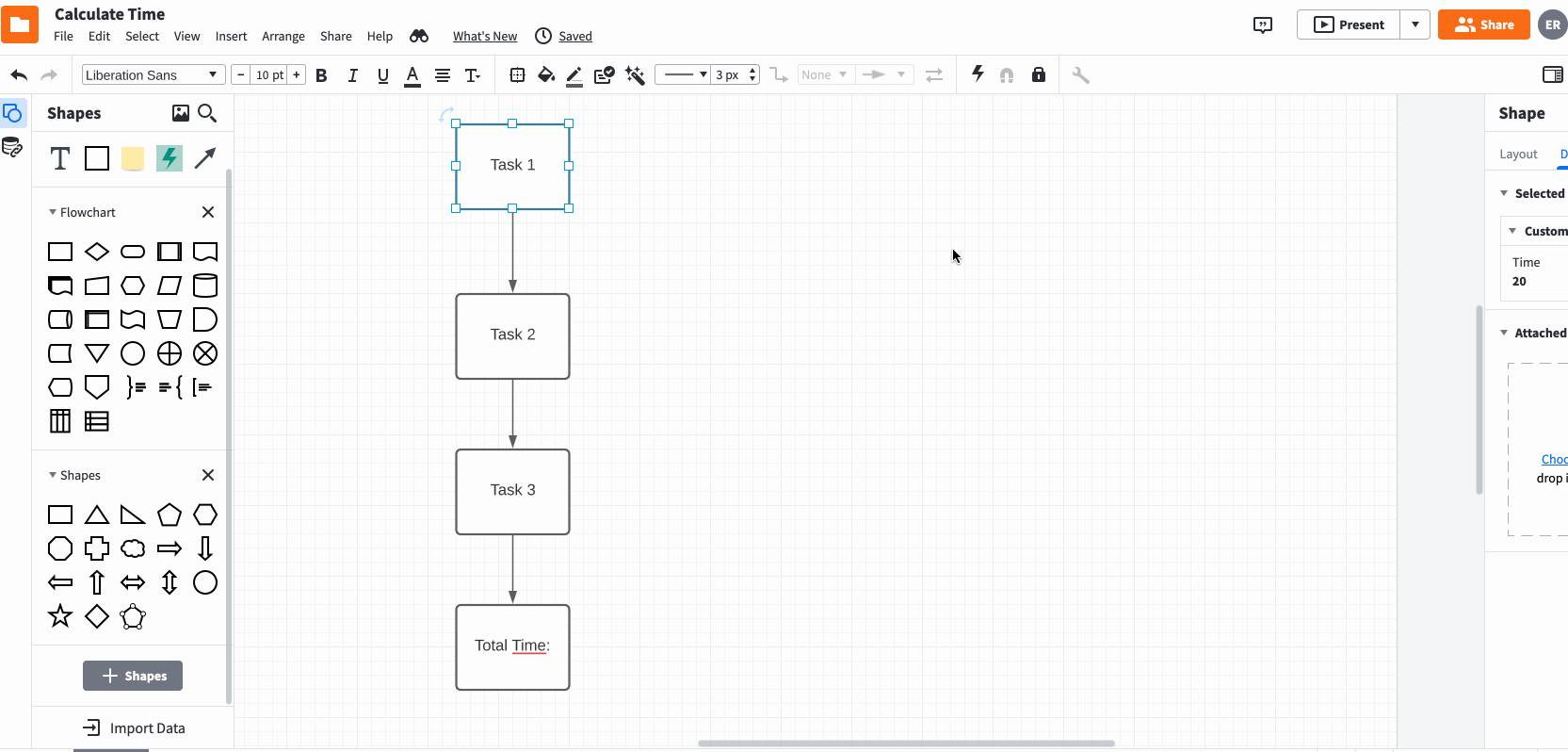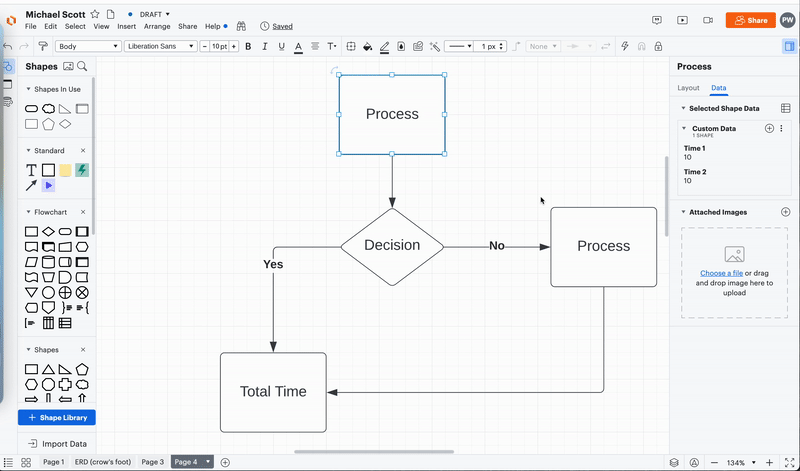Hi all
I'm diagramming the workflow process of a 100+ person organization. For a particular workflow I'd like to be able to calculate how long it will take to complete the workflow based on the sum of how long it takes to complete each individual step.
Use Case:
Develop a swim lane diagram of 4 different departments.
Display the sum of the time to complete both the relevant portion of the swim lane as well as the total time of the overall process.
How do I accomplish this?
(note: I'd like to avoid having to build the process chart in a cSV and then import it in)



